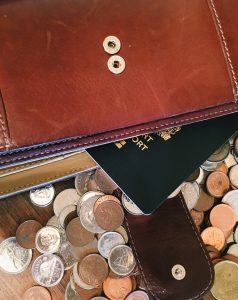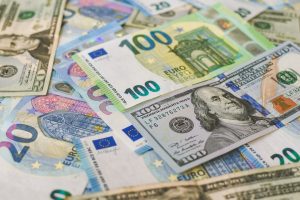Forex, also known as foreign exchange, is the largest financial market in the world with a daily trading volume of over $5 trillion. It is a decentralized market where currencies are traded between individuals, banks, and corporations. Forex brokers act as intermediaries between traders and the market. They provide a trading platform, facilitate transactions, and offer various services to help traders make informed decisions.
The primary role of a forex broker is to provide traders with access to the foreign exchange market. They offer a trading platform, which is a software program that allows traders to buy and sell currencies. The trading platform is usually provided by the broker and can be accessed through a computer, tablet, or smartphone. The platform allows traders to analyze market trends, execute trades, and manage their accounts.
Forex brokers also provide traders with access to leverage, which is a tool that allows traders to increase their exposure to the market by borrowing money from the broker. Leverage can amplify profits, but it can also increase losses if the market moves against the trader. Brokers offer different levels of leverage, and traders should carefully consider their risk tolerance before using leverage.
In addition to providing a trading platform and leverage, forex brokers offer various services to help traders make informed decisions. They provide market analysis, which includes economic news, technical analysis, and market commentary. This information can help traders understand market trends and make better trading decisions.
Forex brokers also offer educational resources, including webinars, tutorials, and e-books. These resources can help traders learn about the market, trading strategies, and risk management. Many brokers also offer demo accounts, which allow traders to practice trading in a simulated environment without risking real money.
Forex brokers earn money through spreads, which are the difference between the bid and ask prices of a currency pair. The bid price is the price at which a trader can sell a currency, and the ask price is the price at which a trader can buy a currency. The spread is the broker’s profit margin, and it varies depending on the currency pair and market conditions.
Forex brokers also earn money through commissions, which are fees charged for executing trades. Some brokers charge a fixed commission per trade, while others charge a percentage of the trade’s value. Commissions can vary depending on the broker and the type of account.
Choosing a forex broker is an important decision that can affect a trader’s success in the market. Traders should consider factors such as regulation, reputation, trading platform, fees, and customer support when selecting a broker. Regulated brokers are subject to oversight by regulatory bodies, which can provide a level of protection for traders. Reputation is also important, as traders should choose a broker with a good track record and positive reviews. The trading platform should be user-friendly and offer the tools and features that the trader needs. Fees should be transparent and competitive, and customer support should be responsive and helpful.
In conclusion, forex brokers play a vital role in the foreign exchange market. They provide traders with access to the market, leverage, and various services to help them make informed decisions. Forex brokers earn money through spreads and commissions, and traders should carefully consider the factors outlined above when selecting a broker. With the right broker and a solid trading strategy, traders can potentially profit from the volatility of the forex market.





